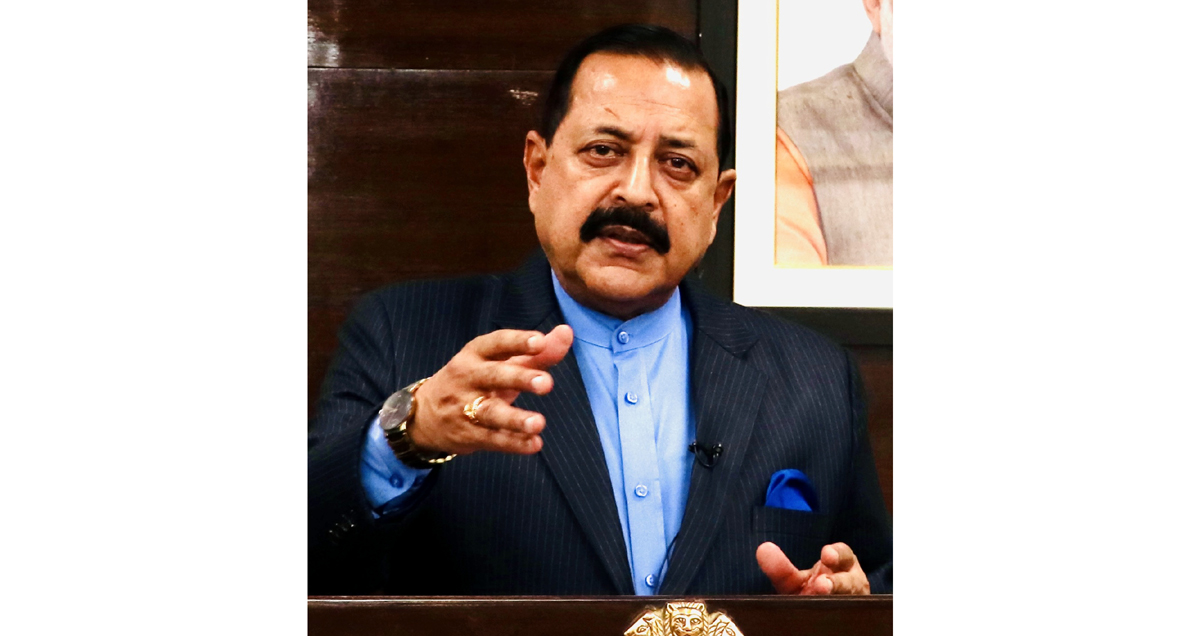
Excelsior Correspondent
NEW DELHI, Feb 23 : Union Minister for Science & Technology and Earth Sciences, Dr Jitendra Singh addressed the UN meet at which he reiterated India’s stand for “preservation”.
In his address delivered virtually to the UN Member Nations supporting high ambition coalition for the early conclusion of the International Legally Binding Instrument – Biodiversity Beyond National Jurisdiction (BBNJ) under UNCLOS, the Indian Minister, on behalf of India led by the Modi govt, urged the member nations to stay dedicated to the conservation and preservation of the oceans and its biodiversity, as well as to supporting sustainable economic development and the well-being of coastal people under the United Nations Convention on the Law of Sea (UNCLOS).
Supporting the high ambition coalition for the early conclusion of the International Legally Binding Instrument – Biodiversity Beyond National Jurisdiction (BBNJ) under UNCLOS, Dr Jitendra Singh said, India’s approach to biodiversity management is congruent with three globally accepted principles: conservation, sustainable usage, and equitable benefit sharing.
Dr Jitendra Singh pointed out that India’s legislative framework, the “Biodiversity Act of 2002,” bears witness to these values and we are determined to support all endeavours of global organisations that work towards the shared objective of achieving a robust and effective agreement on the protection and sustainable use of marine biodiversity in areas beyond national jurisdiction.
Dr Jitendra Singh expressed desire to have a global agreement to ensure a protected and resilient ocean and extended support for the early conclusion of the ongoing BBNJ negotiations and the entry into force of a strong framework that addresses conservation, sustainable utilisation, and equitable sharing of benefits arising from the use of the same.
Aside from major elements such as Marine Protected Areas, Marine Genetic Resources and equitable benefit sharing, capacity building and transfer of marine technology, and Environmental Impact Assessment, India believes that the establishment of new institutions or the strengthening of existing ones with a robust democratic way of functioning are far more important, the Minister added.
Dr Jitendra Singh underlined that India is satisfied with the present talks at the Intergovernmental Conference, as several rounds of intergovernmental talks have been ongoing since 2014, with the most recent one taking place in 2023. He added that during these negotiations, member states worked to reach an agreement on a variety of issues, including the scope and governance of the agreement, the conservation and management of marine genetic resources, the sharing of benefits from their use, and the protection and preservation of marine ecosystems and biodiversity.
Dr Jitendra Singh pointed out that despite significant progress on several major issues, negotiations are still ongoing, and consensus has not arrived at important issues like funding, intellectual property rights and institutional mechanisms.

